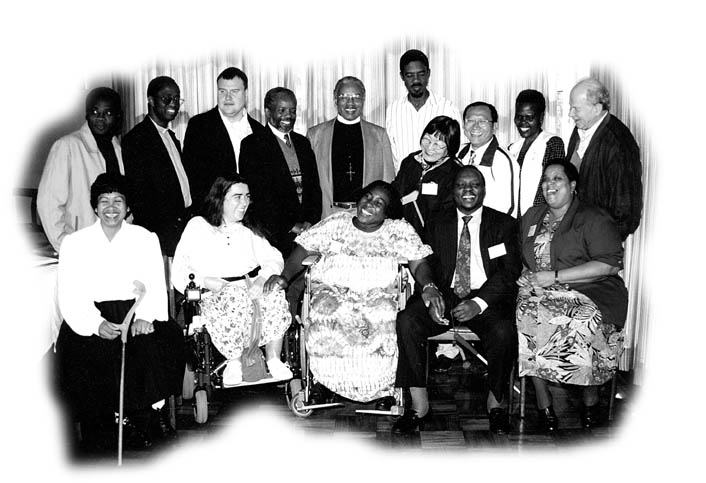
The current EDAN process on the theological discourse
 |
The current EDAN process on the theological discourse
|
The statement highlighted the empirical framework, definitions and theological understanding of the issue of persons with disabilities. WCC member churches and Christians throughout the world were challenged to understand the importance of this issue and to make appropriate response. To date very few have responded. Four years down the road, the Ecumenical Disabilities Advocacy Network (EDAN), Faith and Order and Education and Ecumenical Formation teams, and representatives of the working group in the Lutheran World Federation (LWF) have found it necessary to issue an updated statement to reflect new concerns in this area and to provoke churches, world communions and ecumenical organisations to look at disabilities through the eyes of those affected and give them space to participate, express themselves and contribute their special gifts to the new model of being church.
A first meeting in Geneva from 6-11 August 2000, decided to identify 12 drafters to begin the process. The process will then be widened to collect more views during a 2002 Bossey seminar attended by theologians, disability advocates and others involved in disability work. The Faith and Order, Justice Peace and Creation and Education and Ecumenical Formation teams and LWF will be represented. A "Padare" on disabilities is scheduled for the 2002 WCC Central Committee meeting. The process will culminate in 2003 at a special plenary session to present the interim statement to the WCC Central Committee for adoption.
The drafting process will in all likelihood address the following concerns:
 |
EDAN Network members during the launch in Nairobi: from left to right - Sitting: Razaka Manantenasoa(Madagascar), Simone Poortman (Netherlands), Sarah Babirye (Uganda), Samuel Kabue (Kenya), Kathy Reeves (USA) - Standing: Rev. Abraham Berinyuu (Ghana), Setri Nyomi* (AACC), Arne Fritzson (Sweden), William Temu* (WCC-Staff),
Rev. Jesse Kamau* (moderator Presbyterian Church of East Africa), Gordon Cowans (Jamaica), Te Ja Hee (Korea), Ting Bo Joseph Isai (Taiwan), Dr. Agnes Abuom* (WCC Africa President), Pal Gado (Hungary) * not network members |